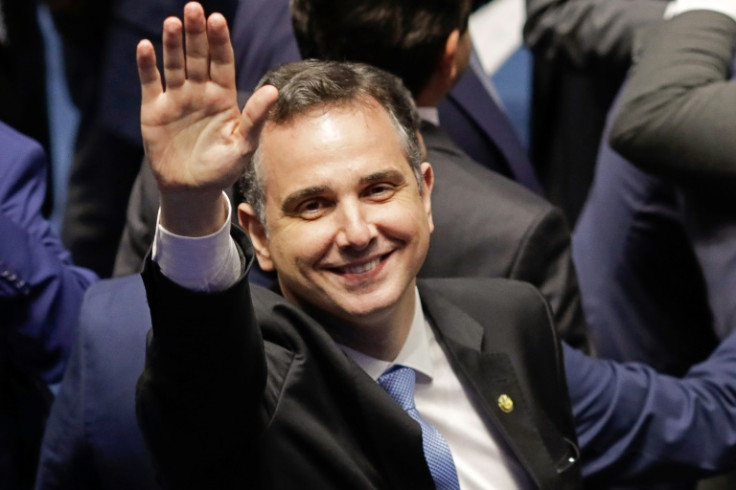Lula Candidate Wins Brazil Senate Chief Post

A lawmaker backed by President Luiz Inacio Lula da Silva was reelected the leader of Brazil's Senate Wednesday, fending off a challenge from a rival supported by far-right ex-president Jair Bolsonaro.
In a win for veteran leftist Lula, Rodrigo Pacheco held onto his post as president of the upper house of Congress, defeating Rogerio Marinho of Bolsonaro's Liberal Party (PL) by a vote of 49 to 32.
Pacheco is from the centrist Social Democratic Party (PSD), which also managed to displace the PL as the largest party in the incoming Senate thanks to a whirlwind of last-minute deal-making.
But the Congress elected in the October polls that brought Lula to office is still largely dominated by conservatives, with the PL the largest party in the lower house.
That threatens to make life difficult for Lula, the 77-year-old ex-metalworker turned three-time president who narrowly defeated Bolsonaro in an October 30 runoff.
Members of the 513-seat Chamber of Deputies and 81-seat Senate were sworn in Wednesday in a tightly guarded ceremony, less than a month after rioters invaded Congress, the Supreme Court and the presidential palace, claiming Lula's win was fraudulent.
In the lower-house leadership vote, due later Wednesday, the winner is expected to be incumbent speaker Arthur Lira, a key figure in a loose coalition of parties dubbed the "Centrao" that is known for its knack for securing government pork and prized posts.
The post is a powerful one in Brazil. The speaker of the lower house is second in the line of presidential succession, after the vice president, and has the power to decide whether to allow impeachment proceedings to move forward.
Formerly a Bolsonaro ally, Lira made an overture to Lula immediately after the new president narrowly won the runoff election, saying it was time to "build bridges."
He recently said their relationship was "calm and friendly."
Lula, who previously led Brazil from 2003 to 2010, has meanwhile made it clear he understands the political reality he faces.
"We're not in charge in Congress, we depend on Congress," he told his ministers at his first cabinet meeting last month.
In comments seen as an olive branch to conservative lawmakers, he vowed there would be no "forbidden issues" or "ideological vetoes."
© Copyright AFP 2024. All rights reserved.





















